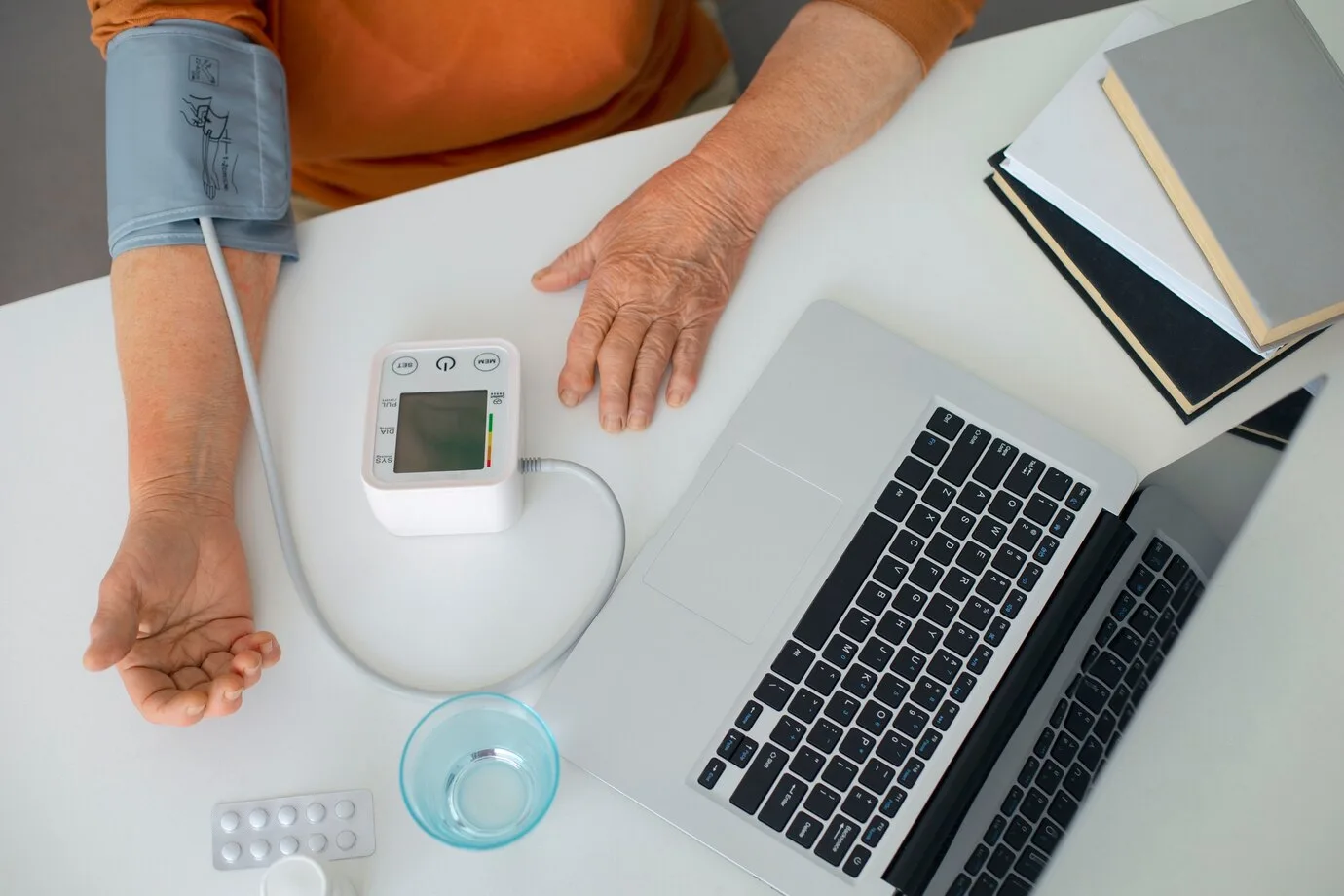What Is The Reason For High Blood Pressure?
Category: Cardiology
High blood pressure, medically known as hypertension, is a prevalent condition affecting millions worldwide. It occurs when the force of blood pushing against the walls of your arteries is consistently too high. Over time, this increased pressure can damage blood vessels, leading to serious health issues such as heart disease, stroke, kidney failure, and vision loss.
At Lokmanya Hospitals, one of the best hospitals for cardiovascular care in Pune, we understand the complexity of hypertension. Our specialized cardiology unit employs advanced diagnostics and personalized treatment plans to identify the underlying reasons for high blood pressure in each patient. With our expert team and cutting-edge technology, we provide comprehensive care to manage and control hypertension effectively.
Understanding High Blood Pressure: The Basics
Blood pressure is expressed as two numbers — systolic and diastolic. The systolic pressure measures the force when your heart pumps blood into the arteries, while the diastolic pressure measures the force when your heart rests between beats. Normal blood pressure is generally considered to be around 120/80 mm Hg.
Hypertension is diagnosed when blood pressure readings consistently exceed 130/80 mm Hg. This condition is often called the “silent killer” because it may not present symptoms until complications develop. Identifying the reasons behind high blood pressure is crucial to controlling it and preventing long-term health damage.
What Causes High Blood Pressure?
High blood pressure can arise from a variety of causes and contributing factors. Understanding these reasons helps in tailoring treatment and preventive strategies.
1. Primary (Essential) Hypertension
About 90-95% of hypertension cases are classified as primary or essential hypertension. In these cases, there is no single identifiable cause. Instead, it develops gradually over many years due to a combination of genetic, environmental, and lifestyle factors.
- Genetics: Family history plays a strong role. If your parents or close relatives have high blood pressure, your risk increases.
- Age: Blood pressure tends to rise with age as arteries lose elasticity.
- Lifestyle Factors: Unhealthy habits like poor diet, lack of exercise, smoking, and excessive alcohol consumption contribute significantly.
2. Secondary Hypertension
Secondary hypertension accounts for 5-10% of cases and results from an underlying medical condition or medication. This type tends to appear suddenly and cause higher blood pressure levels than primary hypertension.
Common causes of secondary hypertension include:
- Kidney Disease: Damaged kidneys fail to regulate blood pressure properly.
- Hormonal Disorders: Conditions like hyperthyroidism, Cushing’s syndrome, and adrenal gland tumors can affect hormone levels, raising blood pressure.
- Obstructive Sleep Apnea: This sleep disorder causes repeated breathing interruptions, increasing blood pressure.
- Certain Medications: Birth control pills, decongestants, steroids, and some pain relievers can raise blood pressure.
- Coarctation of the Aorta: A congenital narrowing of the aorta that forces the heart to pump harder.
3. Lifestyle and Dietary Causes
Certain lifestyle habits and dietary choices directly impact blood pressure:
- High Sodium Intake: Excess salt causes the body to retain water, increasing blood volume and pressure.
- Excessive Alcohol: Drinking too much alcohol raises blood pressure and reduces the effectiveness of some medications.
- Physical Inactivity: Sedentary lifestyles contribute to weight gain and weaken heart function.
- Obesity: Excess weight increases the workload on the heart and contributes to hypertension.
- Stress: Chronic stress triggers the release of hormones that temporarily increase blood pressure, and over time may contribute to sustained hypertension.
- Smoking: Chemicals in tobacco damage blood vessel walls and narrow arteries.
4. Other Risk Factors
- Diabetes: Diabetes damages blood vessels and often coexists with hypertension.
- High Cholesterol: Fatty deposits in arteries restrict blood flow, raising pressure.
- Ethnicity: Certain ethnic groups, such as African-Americans, have higher rates of hypertension.
- Poor Sleep: Inadequate or poor-quality sleep is linked to higher blood pressure.
Symptoms of High Blood Pressure
Most people with hypertension do not experience symptoms. However, when blood pressure reaches dangerously high levels, some may notice:
- Headaches
- Dizziness or lightheadedness
- Blurred vision
- Chest pain
- Shortness of breath
- Nosebleeds (rare but can indicate crisis)
Because symptoms are often absent, regular blood pressure screening is essential for early detection.
Why Choose Lokmanya Hospitals for High Blood Pressure Management?
At Lokmanya Hospitals, we offer comprehensive, patient-centered care for high blood pressure. Our experienced cardiologists and internal medicine specialists use state-of-the-art diagnostic tools to identify the exact causes of your hypertension. This enables us to develop personalized treatment plans combining lifestyle counseling, medication, and continuous monitoring.
Our multidisciplinary team, including dietitians and physiotherapists, supports you through every step of your health journey, empowering you to control your blood pressure and reduce the risk of complications. With thousands of successful cases and a reputation as one of the best hospitals for cardiovascular care in Pune, Lokmanya Hospitals is your trusted partner for managing hypertension.
Effective Ways to Address the Causes of High Blood Pressure
Understanding the reasons behind your hypertension allows you to take active steps toward control:
- Healthy Diet: Reduce salt, saturated fats, and processed foods. Emphasize fruits, vegetables, whole grains, and lean proteins.
- Regular Exercise: Aim for 150 minutes of moderate aerobic activity weekly to strengthen the heart.
- Weight Management: Losing even a few kilograms can have a profound effect on blood pressure.
- Stress Reduction: Practice meditation, deep breathing, or yoga to manage chronic stress.
- Limit Alcohol and Quit Smoking: Both habits raise blood pressure and increase heart risks.
- Regular Monitoring: Keep track of your blood pressure at home and attend scheduled check-ups.
- Medication Compliance: Take prescribed medicines exactly as directed by your doctor.
Conclusion
High blood pressure is a multifactorial condition with diverse causes ranging from genetics to lifestyle and underlying diseases. Recognizing these reasons is critical for effective prevention and management.
At Lokmanya Hospitals, our expert cardiology team combines advanced technology with compassionate care to help you understand and manage the causes of your high blood pressure. Early diagnosis, personalized treatment, and lifestyle support are the cornerstones of our approach, ensuring you live a healthier, longer life.
If you or your loved ones are concerned about hypertension, consult Lokmanya Hospitals—where expert care meets your needs.
Previous blog

How To Reduce High Blood Pressure?
Next blog






